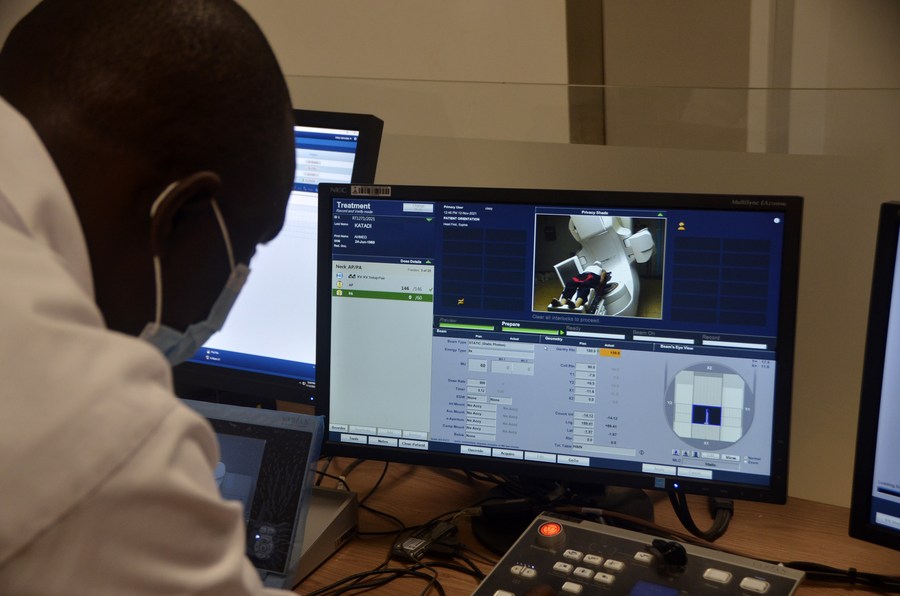
A medical worker treats a patient undergoing radiotherapy at Uganda Cancer Institute (UCI) in Kampala, Uganda, on Nov. 12, 2021. (Photo by Nicholas Kajoba/Xinhua)
BEIJING, Aug. 25 (Xinhua) -- Chinese scientists have developed a non-invasive technique with the help of magnetic energy that holds promise for preventing bone loss in cancer patients under radiotherapy.
The study published on Thursday in the journal Science Advances reported that the pulsed-burst electromagnetic field (EMF) can induce effective signaling responses inside rodent bone-forming cells when exposed to radioactivity.
Radiotherapy, commonly used to treat cancer, increases tumor cure and survival rates, but its unwanted side effects include bone damage.
The treatment described in the study reduced bone loss in rats 45 days after radiotherapy to a level similar to that of rats never exposed to radiation.
The potential strategy can stimulate the growth and differentiation of bone-forming cells called osteoblasts.
The researchers from the Fourth Military Medical University in China examined the real-time calcium ion signaling in irradiated bone cells in response to stimulation with multiple EMF waveforms previously reported to have potential biological effects.
They found that pulsed-burst EMF triggered the strongest calcium ion signaling response when administered at an intensity of 2 millitesla and a frequency of 15 hertz.
The findings offer a new possibility to reduce radiotherapy-induced bone damage non-invasively and cost-effectively, said the researchers. ■












